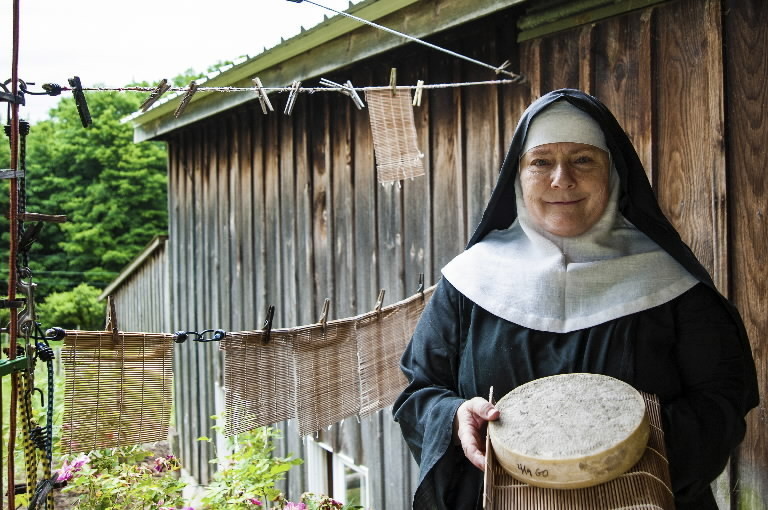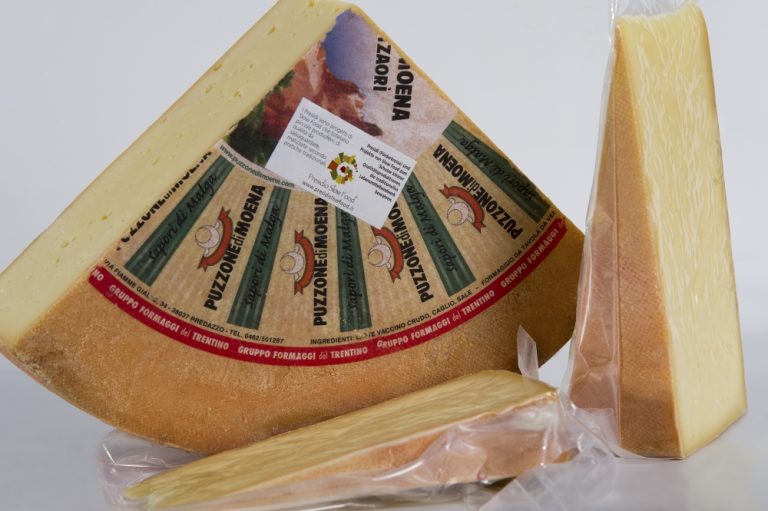Slow Food: Cheese and Biodiversity – On the War Against Bacteria
15 June 2017 | Buket Soyyilmaz
“It’s safe to say we’ve gone overboard on the war against bacteria,” says Michael Pollan in the “Earth” episode of the Netflix documentary series Cooked. Pollan visits Sister Noella Marcellino, a nun and cheese producer from Connecticut who until recently made cheese with traditional French methods, using wooden barrels rather than stainless steel vessels.
Because of a potential outbreak of Listeria—an infectious bacteria—health inspectors forced Sister Noella to stop using wooden barrels. Following her switch to stainless steel containers, the levels of poisonous E. coli in the cheese spiked. In the episode, Pollan finally finds out that it was the bacteria produced by the wood itself that kept her original cheese E. coli-free.
What does this example tell us? In all ecosystems, each organism has a different role. This ecosystem can be in the soil, the sea, in a wooden barrel or in a drop of raw milk.
The importance of the debate on raw milk can also be explained through the essential role of biodiversity. Consider this: the great variety of flavors and fragrances found in artisanal cheeses does not depend just on cheesemaking techniques. It also depends on the richness of invisible life in every single step of the production chain, from the feed of the animals to the containers used. The more you kill biodiversity, the more likely you are to obtain an inferior product with defects and potential hazards to human health.
These invisible, essential bacteria are naturally found in the milk, on the animal’s udders, in the bucket used for milking, and on wooden tools. Today, wood is often banned from dairies and the milk passes from tube to tube, from steel to steel, in a perfectly sterilized environment that inhibits the growth of bacterial flora. Pasteurization does not only kill the bacteria, it damages the structure of the milk.
Cheese-making is essentially working with bacterial competition. “In one milliliter of milk normally there would be a million bacteria and of these, 800,000 would be lactic acid bacteria,” explains Giampaolo Gaiarin, the coordinator of two Slow Food Presidia cheeses in Trentino, Italy, Vezzena and Moena Puzzone. “These days in the same milliliter there are less than 100,000, while the lactic acid bacteria are 20 to 40 thousand, sometimes zero.”
Protection of biodiversity is a fundamental rule and it applies not only to agriculture but to all aspects of food production, including cheesemaking. Biodiversity is a natural armor through the variety of organisms within any habitat, ensuring a healthy, balanced and productive ecosystem. Bacteria in wooden barrels which fight E.coli in milk are only a small part of it.
Raw milk is a food full of life, with microorganisms that give diverse characteristics to each cheese, and preserve its nutritional value. When milk is pasteurized, the applied heat kills the microorganisms, reduces the vitamins and proteins as well—killing the life in it.
Moving from pasteurized milk to raw milk is not only a better choice for our own health, it is the right choice to sustain small-scale producers who work in respect to all life forms, and fight the terrible impacts of the profit-based livestock industry. It is the right choice in our pursuit to protect biodiversity.
Cheese 2017 will be an excellent opportunity to discover the biodiversity of cheese and support artisanal dairy producers coming from around the world. Check out the site from the 27th of June to discover the entire program!


Mike,
As the founder of Opdc here in Fresno CA. You are totally right on.
Your article is based on good science and I can also vouch for your article with 17 years of experience with production of retail approved and tested organic raw milk. Conditions and biodiversity matters deeply!!
It also matters inside of your body. The same set of conditions that exist in the environment are mirrored and exist in our gut. Western medicine is having a very hard time reconciling this probacterial world. Our best science has shown this to be true with the NIH Human Biome Project.
We are bacteriosapiens and bacteria are our best friends. They protect us, make vitamins, make enzymes, provide genetic data to keep us healthy and well adjusted. It is a balance of good verses bad. Better have a huge amount of good and feed them. If not… you become a welcome mat for bad bacteria.
Good work!!
Mark Mcafee
CEO Opdc